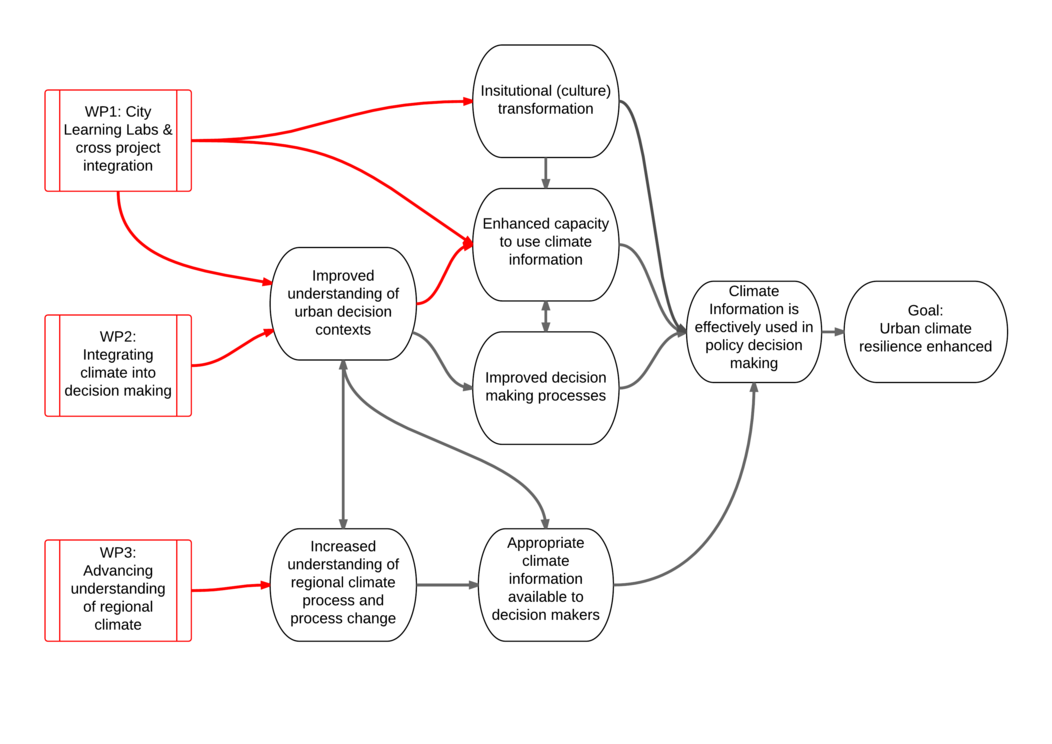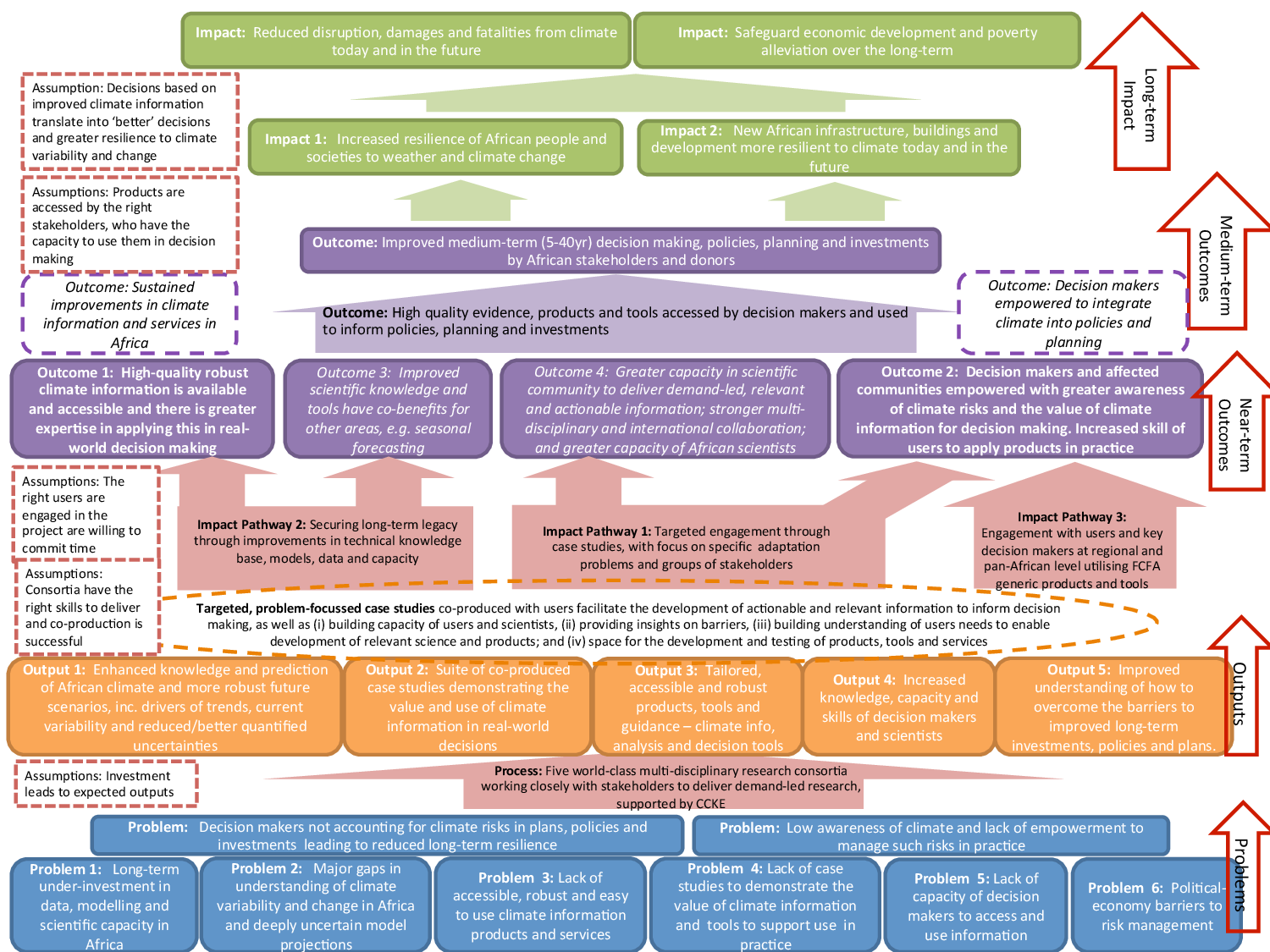What is a Theory of Change?
“A Theory of Change defines all building blocks required to bring about a given long-term goal. This set of connected building blocks–interchangeably referred to as outcomes, results, accomplishments, or preconditions is depicted on a map known as a pathway of change/change framework, which is a graphic representation of the change process.
Built around the pathway of change, a Theory of Change describes the types of interventions (a single program or a comprehensive community initiative) that bring about the outcomes depicted in the pathway of a change map. Each outcome in the pathway of change is tied to an intervention, revealing the often complex web of activity that is required to bring about change.”
source: http://www.theoryofchange.org/what-is-theory-of-change/
Why a FRACTAL Theory of Change?
Many classic large consortium research projects are divided up into discipline specific work packages each addressing a set of problems or questions and then drawing all the results together at the end. FRACTAL is framed as transdisciplinary research and has as an underlying foundation that the problems we are addressing cannot be solved by a single discipline operating in isolation. FRACTAL is designed to include iterative cycles of learning cutting across the various disciplines throughout the project’s lifetime.
We believe that transdisciplinary, iterative, cyclical, learning is key to developing useful outcomes that have a measurable impact during and beyond the lifetime of the project. Developing a ToC of is a very useful way of exploring how that impact might be achieved, what stages and cycles of learning might contribute towards the outcomes and impacts, and what assumptions we are making along the way.
A ToC change can also point us towards useful metrics of progress during the project to make sure that we are making gains towards our targeted objectives. However we consider at ToC to be a dynamic entity that we can revisit periodically as part of the learning process.
The current state of the FRACTAL ToC
The figure below is the current tentative state of the FRACTAL ToC change diagram. Two goals have been identified. The long term goal is that African urban climate resilience is enhanced. FRACTAL cannot achieve this goal explicitly within the 4 years of the project but aims to contribute towards this goal through the second goal which is explicitly focussed on climate information being effectively used in urban decision making.
In order to contribute towards these goals being met, four specific outcomes are targetted. The first is some level of institutional transformation (cultural) within the study cities. The second is an enhanced capacity to use climate information. The third is changed/improved decision making processes that are able to integrate climate information. And finally, the availability of appropriate climate information to inform decisions.
These four key outcomes map directly and indirectly back to the three work packages. Work packages 1 and 2 (city learning labs and integrating climate into decision making), through an improved understanding of urban decision making contexts (urban governance/political economy, etc..) will contribute towards all four key outcomes. Work package 3, the climate science component, will focus on improved understanding of regional climate process dynamics, partly informed by improved understanding of the decision context and related information needs. Improved understanding of climate processes should support the development of appropriate climate information for decision making, again informed by improved understanding of urban decision contexts.
Moving forward
The FRACTAL ToC is a work in progress but as it stands is a useful tool for discussing and communicating the learning process we envisage taking place. Some key elements that need more work include clearly articulating the assumptions we are making, as well as detailing the various outcomes and interventions mentioned in the diagram.
The FCFA Theory of Change
The CCKE is mandated to develop a FCFA wide ToC and logframes against which FCFA research consortiums (RC) will be measured. This process is being facilitated through a Monitoring, Evaluation and Learning (MEL) working group with representation from each RC. Each RC is free to develop their own ToC but ideally these should have clear connection points into the FCFA ToC.
Below is the current FCFA ToC diagram


